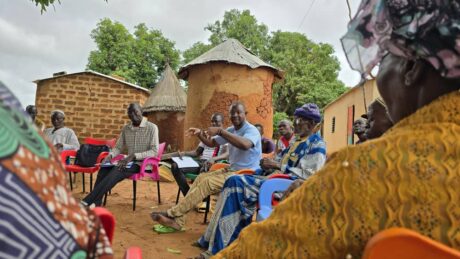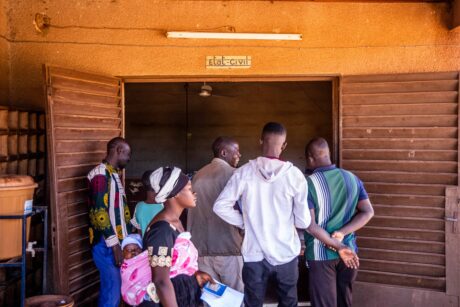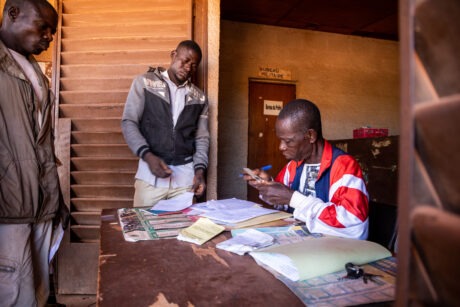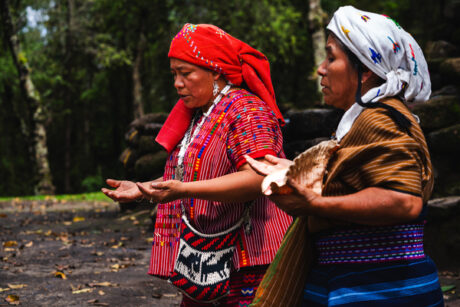The USAID-funded Improved Governance for Resilience (IGR) program strengthened local governance in Burkina Faso and the relationship between citizens and the government.
USAID’s Improved Governance for Resilience program’s transformational governance approach centered on shifting the governance paradigm from one of supply and demand to one of shared responsibility and shared success: a system that reimaged the relationships between and among state institutions and local actors to ensure responsive service delivery, equiped citizens with skills and resources to hold governments accountable and strengthened the social contract between local governments and citizens to collectively stop the infiltration of violent extremist groups.
Working in 26 communes, IGR aimed to strengthen local governance in Burkina Faso and the relationship between citizens and the government.
Program Achievements
IGR assessed town halls and worked with governments and civil society organizations (CSOs) to support the development of capacity-building action plans for communes, emphasizing accountability, communication, and participatory budgeting training. Additionally, IGR supported local governments in issuing civil status documents, holding communal consultations, and raising awareness on civic participation and tax payments. The activity also assisted in implementing the Open Government Partnership (OGP) at the local level, promoting participatory budgeting through grants and training. IGR facilitated the issuance of birth certificates and national identity cards and engaged youth in craft training for economic resilience. Furthermore, IGR organized training sessions on conflict prevention and management to foster social cohesion and community stability.
By empowering CSOs and citizens, IGR enabled them to participate actively in defining local priorities, implementing decisions, and evaluating their effectiveness. Key activities included training CSO coalitions in advocacy, leadership, and constructive communication, launching awareness-raising tools for citizens on municipal services, and promoting peace, social cohesion, and conflict prevention. These efforts ensured that marginalized groups can express their needs to local authorities and foster responsible, inclusive governance at the local level.
By institutionalizing and linking existing governance structures and service delivery systems, IGR enhanced transparency and accountability, fostering civic engagement and productive dialogue. Key activities included organizing regional consultation meetings with local authorities to align IGR’s actions with communal needs, implementing an integrated communication strategy to combat misinformation, and raising public awareness about municipal services, civic responsibilities, and social cohesion. Through these efforts, IGR promoted inclusive and responsible governance, encouraging collective action and effective citizen-state engagement.



